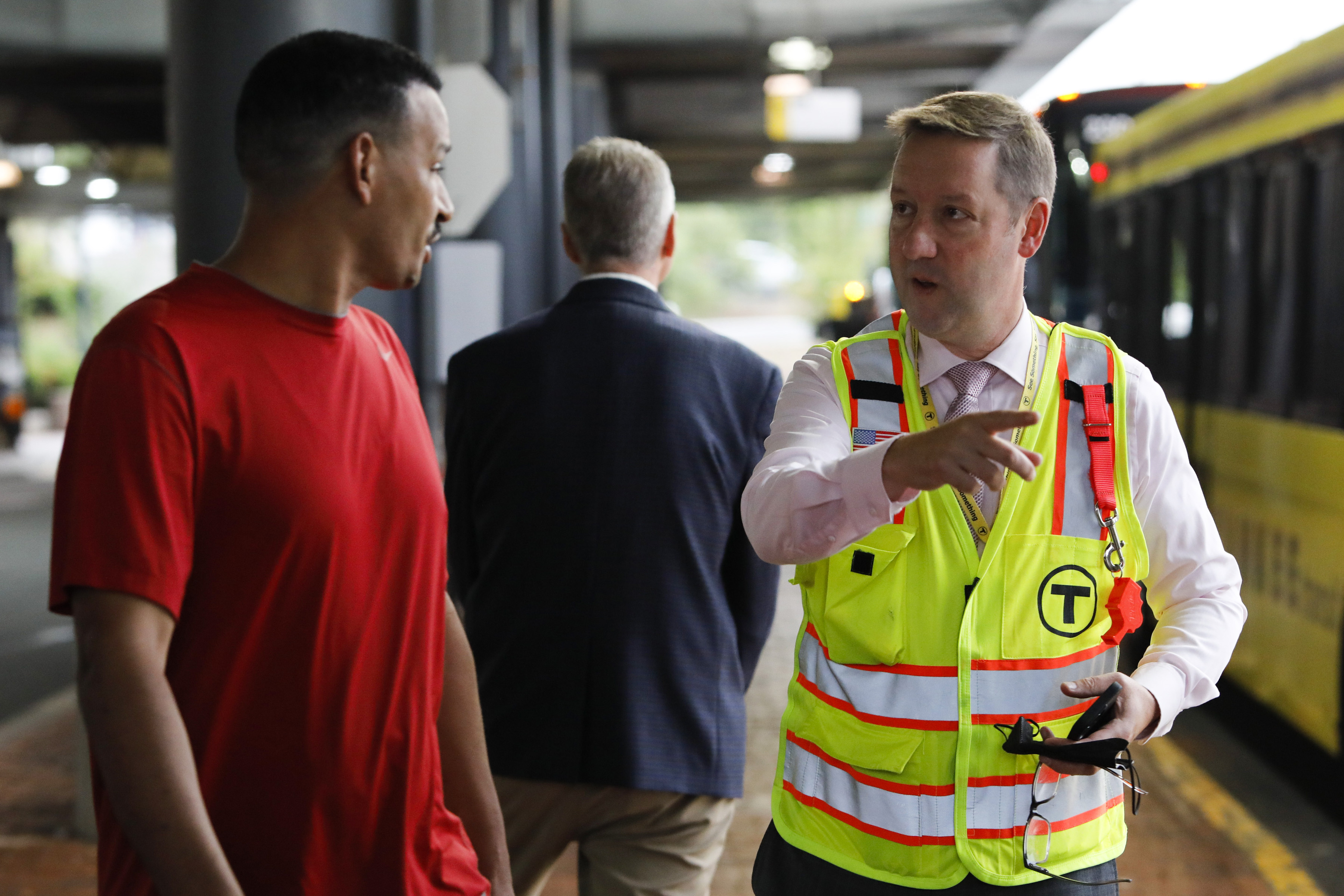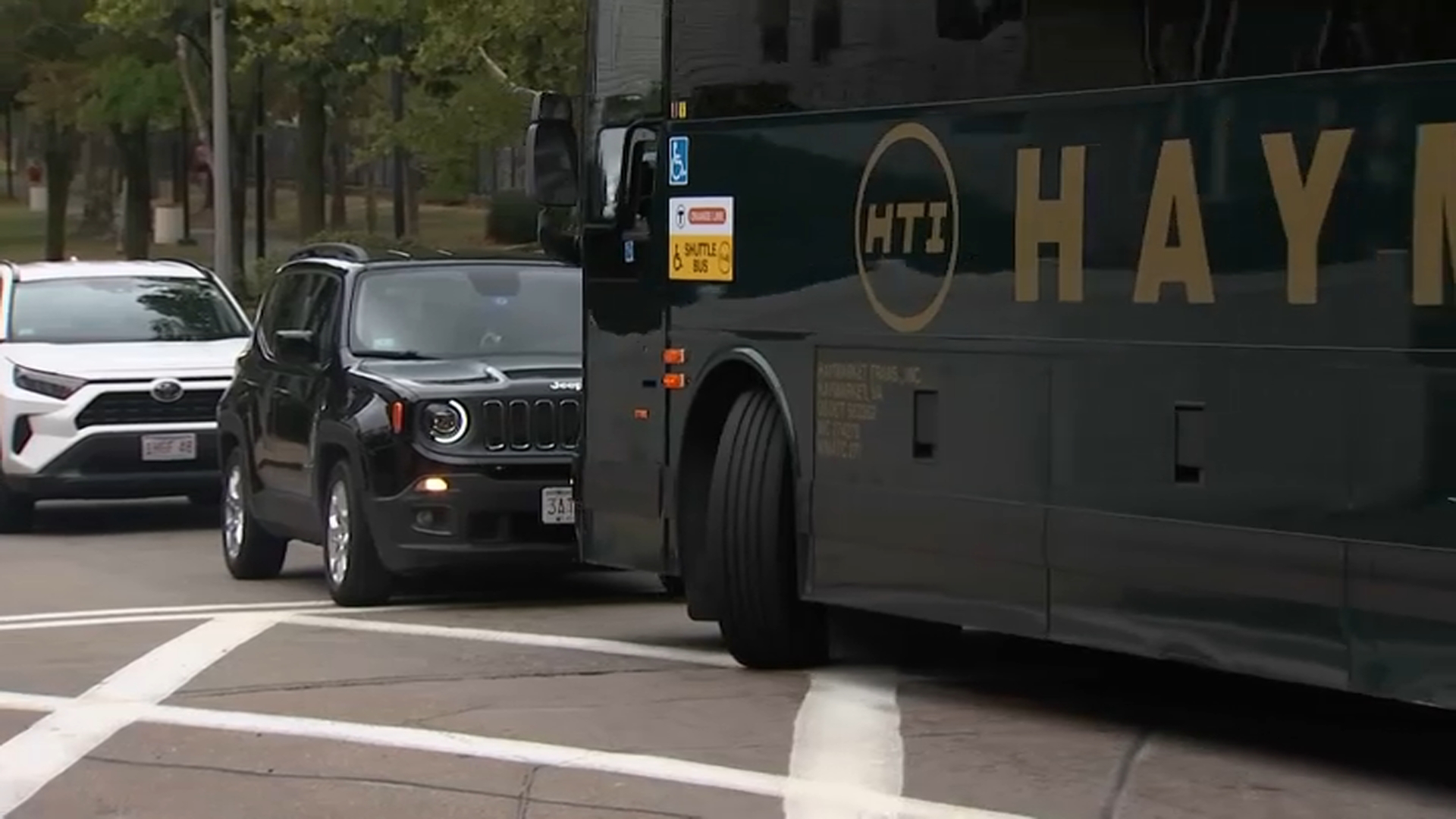While the shutdown on the Orange Line and part of the Green Line has been a source of turmoil for the MBTA, one local transportation expert said it distracts from an even bigger problem with the T -- reduced service this summer.
At the end of June, the MBTA announced cuts on the Red, Orange and Blue subway lines to address staffing shortages and training. The regular weekday schedules were slashed to resemble a weekend schedule, with longer wait times between trains. The move came in response to directives from the Federal Transit Administration to upgrade safety in four areas.
"This is the hidden issue that is, frankly, being a little bit obscured by all of the attention on the Orange Line," said Jim Aloisi, a consultant and former head of the Massachusetts Department of Transportation. "Sometimes people are waiting 15, 18 minutes for the next subway train on a weekday. That's really bad. That's really unacceptable and the T really needs to address it while it's also dealing with the Orange Line -- it has to chew gum and walk at the same time."
The biggest issue that the T needs to work on that is not being discussed, but the people who take the T like me experience every single day, is lack of frequency.
Former Massachusetts Transportation Secretary Jim Aloisi
Get Boston local news, weather forecasts, lifestyle and entertainment stories to your inbox. Sign up for NBC Boston’s newsletters.
The MBTA never set a precise expiration date on the reduced schedule, except to say that it would "remain in effect for the summer season." And Wednesday, the head of the MBTA made it sound like it wouldn't be changing any time soon.
MBTA General Manager Steve Poftak said that he doesn't expect service levels to change by autumn, though an announcement on that front is expected soon. One group of staffers in the MBTA's Operations Control Center is currently being trained, according to Poftak, with another class coming behind them.
"Our priority is always going to be safety and we are prioritizing safety in this case, so until we feel we have an adequate level of staffing at the OCC, we are going to keep a service level in place that we feel we can run safely," Poftak said.
Later Wednesday the MBTA posted information on a series of service changes for the fall, related to the FTA directive to address staffing problems at the Operations Control Center.
There will be service changes on all the T lines except the Blue line, including fewer service runs on the Green Line branches during the week and weekends, effective on August 28. Many bus lines will also see less frequent service, and there are also route changes.
The MBTA also warned that there will be changes to the Commuter Rail and ferry coming in October.
For a full list of changes, click here.
The first big test of the MBTA's unprecedented 30-day closure of the Orange Line came Monday, when tens of thousands of people attempting to commute to work and school were forced to seek alternate routes, including the commuter rail, shuttle, buses and even bikes. There have been no major incidents reported so far, but Aloisi expects the impact will get worse after Labor Day, which Poftak echoed Wednesday.
The reduced schedule throws another wrench into the disruptions.
"The biggest issue that the T needs to work on that is not being discussed, but the people who take the T like me experience every single day, is lack of frequency," Aloisi said. "I don't think that's sustainable after Labor Day. But that's going to continue well after Labor Day until the MBTA is able to finish hiring and training new dispatchers for their Operations Control Center."
Sign up for our Breaking newsletter to get the most urgent news stories in your inbox.
The Federal Transit Administration began investigating the MBTA in April after a death and several incidents that caused injuries. The directives issued by the federal agency in June required the MBTA and the Massachusetts Department of Public Utilities to collaborate on fixing the issues and improve the culture of safety at the MBTA. Two days later, officials announced the unprecedented 30-day shutdown. Orange Line and Green Line trains past Government Center are shut down and won't start up again until Sept. 18.
Aloisi said the decision to shutdown the entire Orange Line was a mistake. He hopes there aren't any more month-long service shutdowns in Boston's future, noting that night work is a preferable option.
"The Federal Transit Administration issued a safety directive that something needed to be done. The MBTA chose to basically do this as the solution," Aloisi said. "I think this was always a mistake."



